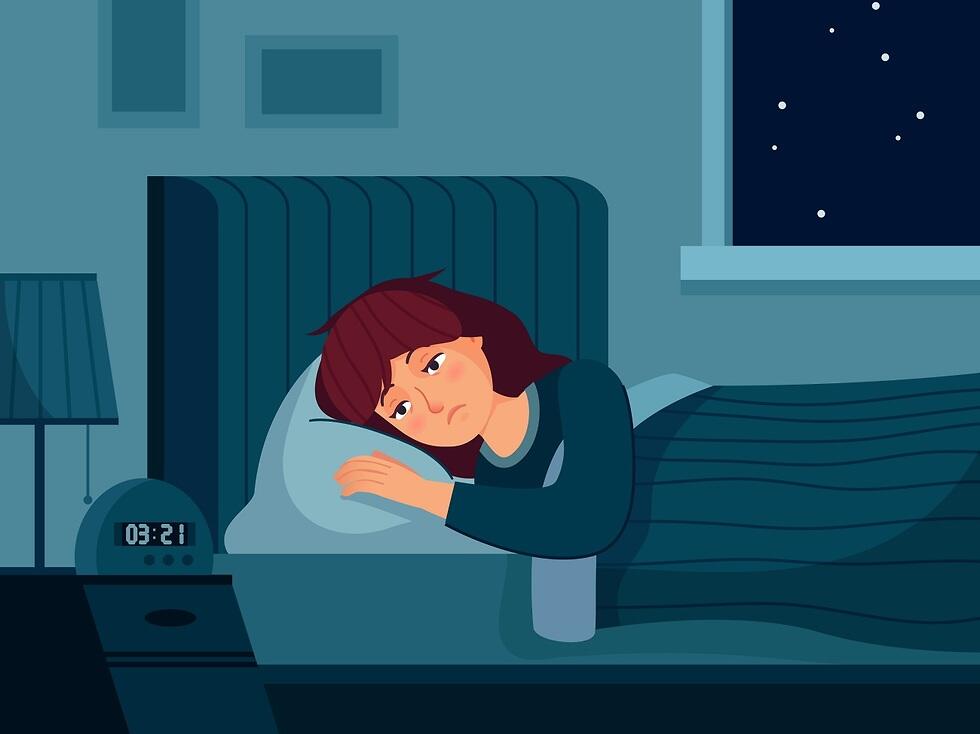Getting your Trinity Audio player ready...
Good sleep is essential for health, functionality, and overall well-being. However, during prolonged periods of stress, such as war, many experience increased sleep disturbances due to heightened anxiety and disruptions to daily routines. Experts are actively addressing this issue, offering solutions to improve sleep quality.
Sleep and its challenges during stressful periods
Prof. Giora Pillar, head of Sleep Clinics at Clalit Health Services in Haifa and the Western Galilee, reports a significant increase in demand for sleep treatments since October 7th. Despite ongoing rocket sirens and missile attacks, patients are keeping their appointments, seeking help for sleep-related issues.
According to Prof. Pillar, approximately 10-15% of the population suffers from chronic sleep disorders, with women affected more often than men. For many, insomnia feels like a constant battle; even when they manage to sleep, the quality is poor, leading to a significant decline in life quality.
To achieve good sleep, two key factors are needed: physical and mental fatigue and relaxation. Older individuals, for example, who nap during the day, often find themselves less tired at night. Prof. Pillar recommends building up fatigue through physical and mental activity during the day. Additionally, entering the bedroom in a relaxed state is crucial. However, during times of war, quiet and darkness may trigger intrusive thoughts, making relaxation more difficult.
Practical sleep solutions and strategies
Prof. Pillar emphasizes that while medication is an option, it should not be the first resort due to potential dependency. Instead, he recommends focusing on healthy sleep habits, such as avoiding daytime naps, maintaining a consistent bedtime, reducing caffeine intake before bed, and practicing relaxation techniques like mindfulness, yoga, meditation, or guided imagery. Consulting a psychologist to relieve stress and anxiety can also be beneficial.
He advises against trying to force sleep, as this only increases frustration and adrenaline, making it harder to fall asleep. If sleep doesn’t come, it’s better to get out of bed and do something calming, like reading, before trying again. Natural remedies, such as melatonin or herbal supplements, may also be helpful.
Prof. Pillar notes that even government officials and politicians are seeking help for insomnia due to the pressures of their roles. However, he warns that sleeping pills may not be suitable for those who need to remain alert, such as during emergencies or alarms.
The role of sleep in cognitive function and memory
Sleep is critical for brain function, particularly for memory, focus, and mental performance. Research shows that during sleep, the brain processes and stores significant memories, transferring them from short-term to long-term storage. Deep sleep and dream sleep, which typically make up four hours of the average eight-hour sleep cycle, are especially important for this process. Chronic sleep disturbances can lead to fatigue, reduced concentration, and impaired memory.
Dr. Alex Gileles-Hillel, senior pediatric pulmonologist and sleep physician at the Hadassah Medical Center, has been studying the impact of recent events on sleep patterns. Surveys conducted before and during the war show a significant deterioration in sleep quality across the population, which aligns with additional data from Israel's Central Bureau of Statistics.
Additional factors for better sleep
Research highlights other factors that contribute to improved sleep. For example, melatonin production, which decreases with age, can be naturally boosted by sleeping in complete darkness, avoiding caffeine, and reducing screen time before bed. Proper environmental design, such as dim night lighting, particularly in bedrooms and bathrooms, can also help maintain the body’s natural sleep rhythms.
Nutrition also plays a role. Eating a light dinner at least three hours before bedtime can aid digestion and relaxation, while calming teas like chamomile or lemon balm can promote better sleep. Avoiding processed foods, caffeine, and alcohol in the evening is also recommended.
Get the Ynetnews app on your smartphone: Google Play: https://bit.ly/4eJ37pE | Apple App Store: https://bit.ly/3ZL7iNv
Finally, air quality in the bedroom affects sleep. Keeping windows and doors closed to prevent pollution and regularly cleaning to reduce allergens can improve sleep quality. Essential oils and aromatherapy can also help by reducing stress and promoting relaxation.
In challenging times, prioritizing sleep is more important than ever, as it directly impacts physical, mental, and emotional well-being. Experts encourage adopting healthy sleep habits and making small lifestyle adjustments to ensure better rest, even in difficult circumstances.



